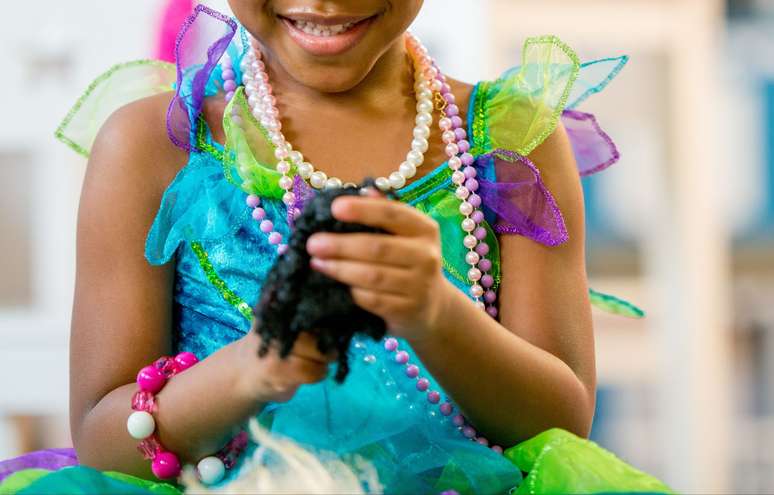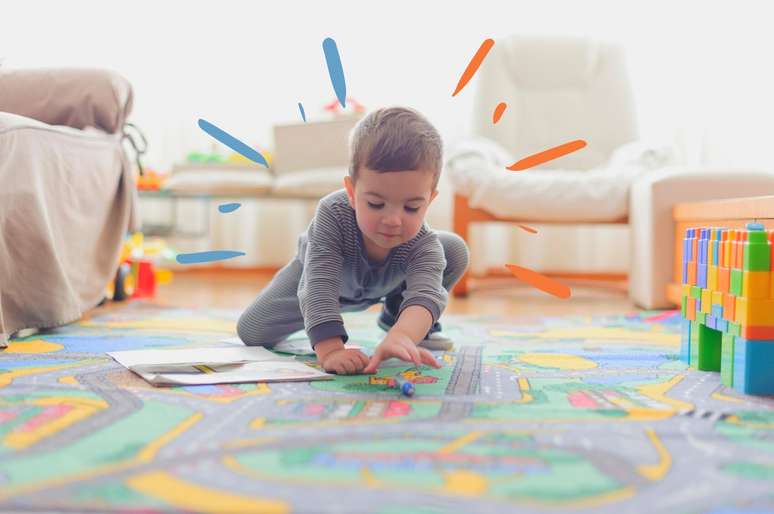The expert explains the importance (and consequences) of free play in childhood
Did you ever realize interfere with your child’s play, or because you think he could “do it differently”, or because you think he would learn something with your help? This behavior is common, for example, when we see a child trying to build a castle with blocks and we go there – without asking for help – to teach him how to do it.
html[data-range=”xlarge”] figure image img.img-715b121c240e81fde99e8a7c40b0213c6wabkv7u { width: 774px; height: 514px; }HTML[data-range=”large”] figure image img.img-715b121c240e81fde99e8a7c40b0213c6wabkv7u { width: 548px; height: 364px; }HTML[data-range=”small”] figure figure img.img-715b121c240e81fde99e8a7c40b0213c6wabkv7u, html[data-range=”medium”] figure image img.img-715b121c240e81fde99e8a7c40b0213c6wabkv7u { width: 564px; height: 375px; }
The practice itself is not harmful, but in the long run it takes away precious opportunities for the little one. “By playing without interference, children have the opportunity to do this explore, experiment, solve problems and develop skills that are important for your growth“, explains Junior Cadima, psycho-pedagogue specialist in Child Development applied to Education and Psychomotricity.
According to the professional, it is in this moment of free play that there is freedom to construct one’s own knowledge in an authentic way. Note that children don’t need to be taught to play and that, in their ingenious little hands, anything can become a toy.

Freedom and boredom to discover the fun
That doesn’t mean you can’t play with your child, on the contrary: bonding and development also happen through this relationship, which is very important.
However, it is worth noting that moment when the little one is concentrated on some business alone and tries not to interrupt with comments like “better use the big blocks below” or “this block is blue, right? Do you remember what blue is in English?”. Intention is always best, but it can end up cutting off a line of reasoning or even the opportunity to solve a problem within your own skill.
“It is through play that children explore the world around them, experience different roles and increase your creativity and imagination“, reinforces the educational psychologist. Hence the importance of letting them maintain concentration and their own way of thinking.
Free play is also associated with (so dreaded today) boredom. Nowadays, in addition to the various activities many children are enrolled in outside term time, electronic devices are often on hand to fill their free time. “But it’s extremely important that they experience idleness,” warns Junior. “This is how they have the opportunity to use their imagination and creativity to have fun, develop skills for self-regulation and autonomy”ends.
Source: Terra
Ben Stock is a lifestyle journalist and author at Gossipify. He writes about topics such as health, wellness, travel, food and home decor. He provides practical advice and inspiration to improve well-being, keeps readers up to date with latest lifestyle news and trends, known for his engaging writing style, in-depth analysis and unique perspectives.








